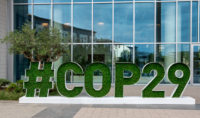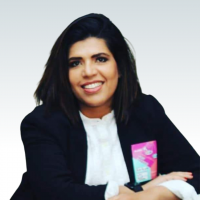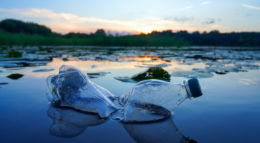
Rich countries deadlock at COP29 withdraws lifeline from Global South
COP29, the UN’s annual climate summit, was not just an anti-climax. It was an outright disaster.
The Summit was off-track before it even began. Leading figures from the Global North avoided the summit entirely, Argentina left early, and the Azerbaijani President was busy making oil deals on the side.
Its utter failure is being swept under the rug, with many of the world’s richest countries claiming it just wasn’t a “Big COP” like Paris in 2015 or COP30 in Brazil next year.
In truth, every COP must be a “Big COP” to rescue the planet from the brink. I’ve witnessed firsthand the devastation of extreme flooding in Pakistan, where thousands have died or been displaced. The damage has severely impacted our economy, especially our agriculture, which is struggling to recover.
Pakistan isn't alone. The Global South faces escalating climate impacts—rising temperatures, extreme weather, soil erosion, and biodiversity loss—making land unworkable, towns uninhabitable, and climates nearly unliveable.
Watching COP29 descend into chaos, with delegates shouting over each other, filled me with despair. For those of us already suffering, this summit was supposed to be our lifeline.
Among its highest priorities was the setting of a new climate finance target, replacing 2009’s commitment, which saw ‘developed’ countries promising $100 billion per year in climate aid to their ‘developing’ counterparts by 2020.
But even that goal wasn’t met until 2022. Worse yet, wealthy countries used it to funnel funds back into their pockets, leaving those they claimed to help trapped in debt-cycles. This was raised in 2023, months after Pakistan took on $10 billion in loans for flood recovery, while its debt neared $100 billion, as families starved.
At COP29, the new target was supposed to mobilize trillions, but developed nations pledged only $300 billion. Even that amount is uncertain—whether it will arrive on time, in the right places, or at all. Worse, the loss and damage fund from COP27 remains severely underfunded. Originally set at $700 million, it has only increased to $810 million—far from what’s needed. Pakistan alone requires over $300 billion annually just to survive.
Any faith we had in the Global North is dwindling fast. What we need now is mass mobilisation and education, preparing us for the fight of our lives.
Civil society organizations from the Global South are already making strides. The Pan African Climate Justice Alliance supports indigenous peoples, women, and youth in their fight for climate justice. Fundación Natura Bolivia aids farming communities in environmental conservation, while India's Self-Employed Women’s Association empowers women to create sustainable livelihoods.
I, personally, sit on the board of Faith for Our Planet, an organisation established by the Muslim World League (MWL), the largest Islamic NGO in the world. Our unique forum for inter-faith capacity-building on the climate crisis has joined a global religious movement for climate action.
This means acknowledging that the UN's sustainable development goals can't be met without the inclusion of women and Indigenous groups. The UN has credited girls’ education as a key solution to the climate crisis, with projections showing it could save 70 gigatons of carbon emissions by 2050.
Under the leadership of Secretary-General Sheikh Mohammad Al-Issa, the MWL is preparing to host thousands of academics, politicians, and Islamic scholars globally for a historic conference on girls' education in Muslim communities.
The event will be held in Pakistan next January. At its conclusion, MWL will launch a long-term project focused on this critical issue, featuring global awareness campaigns and a new platform for pledges. Most notably, they will introduce a groundbreaking Charter supporting girls' education in the Islamic community.
The event will be held in Pakistan next January. At its conclusion, MWL will launch a long-term project focused on this critical issue, featuring global awareness campaigns and a new platform for pledges. Most notably, they will introduce a groundbreaking Charter supporting girls' education in the Islamic community.
It's women, youth, and Indigenous people that give me hope, even as world leaders seem willing to sacrifice countries like mine. But we can't do this alone.

Every year, we need, bolder commitments—delivering suitable funding and addressing centuries of inequality. More than unreliable targets, we need a complete overhaul of global finance, with innovative solutions like green loans, sustainability bonds, debt-for-climate swaps, carbon pricing, and climate insurance. Crucially, we must implement robust monitoring mechanisms to ensure that funds are delivered on favourable terms.
Next year’s COP in Brazil is already gaining more traction than COP29 in Azerbaijan. Countries will submit their updated climate commitments, and Global South voices will be heard more than ever. We have one year to demand the boldest action yet—empty promises are no longer enough.

Zareen Zahid Qureshi works as Director at Children of Adam in Pakistan, a US-based nonprofit that focuses on youth empowerment, mental health, and humanitarian aid.














